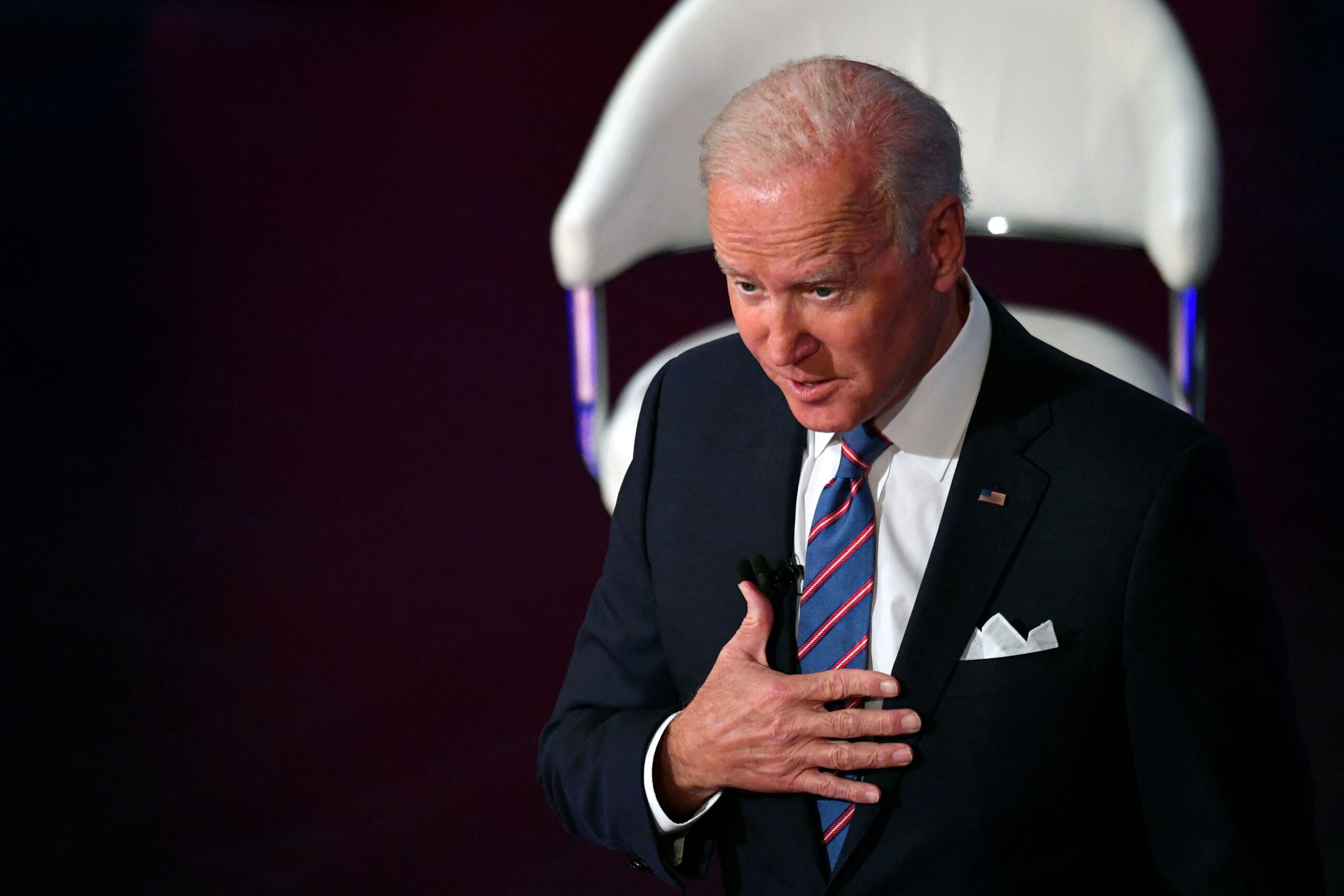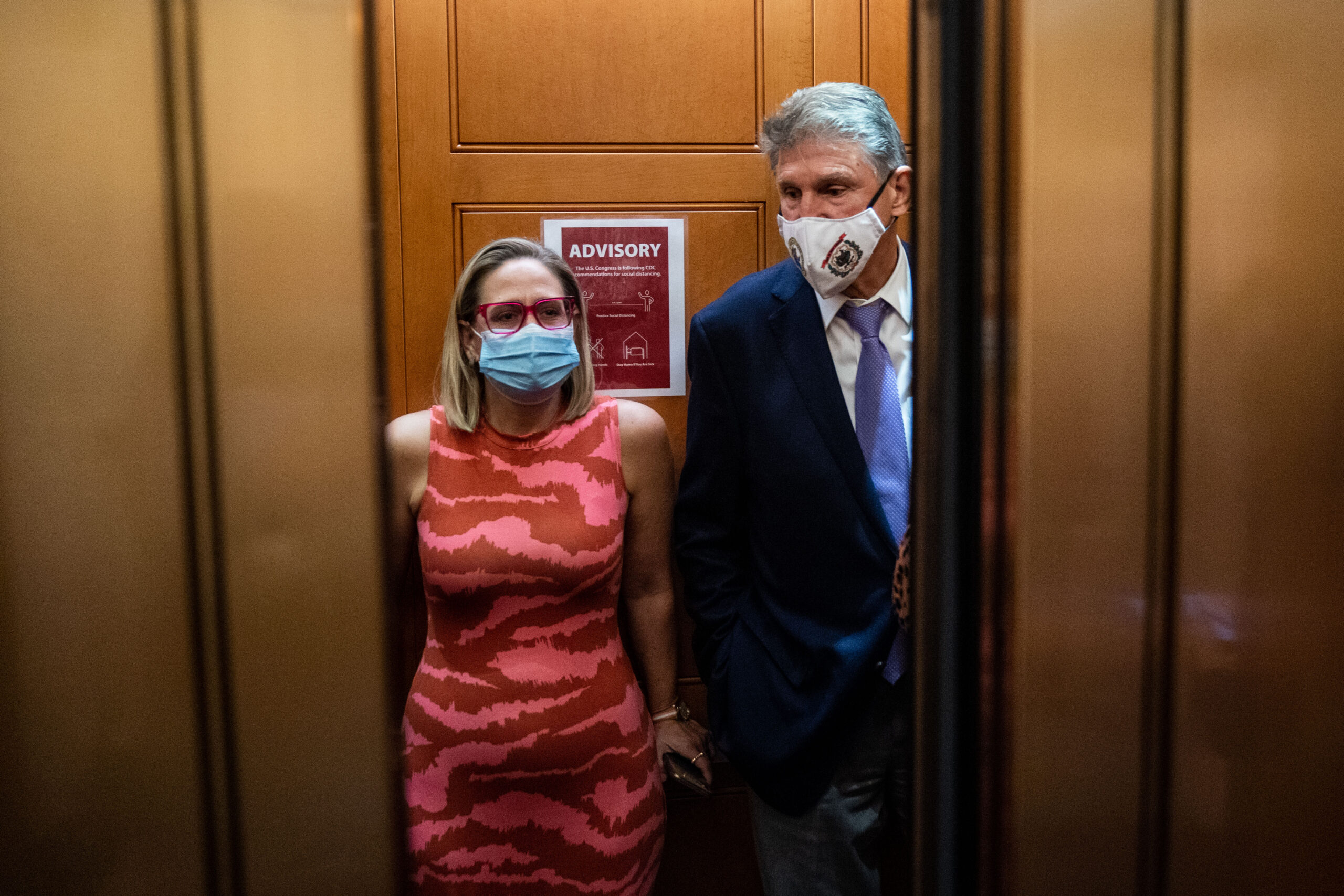Free Community College Cut Frustrates Higher Ed Advocates
Writer
Writer
www.bestcolleges.com is an advertising-supported site. Featured or trusted partner programs and all school search, finder, or match results are for schools that compensate us. This compensation does not influence our school rankings, resource guides, or other editorially-independent information published on this site.
Turn Your Dreams Into Reality
Take our quiz and we'll do the homework for you! Compare your school matches and apply to your top choice today.
- Free community college was a prominent campaign promise from President Joe Biden.
- Democrats cut the proposal from a spending bill to gain the support of moderate party members.
- Despite the cut, advocacy groups agree the fight for free community college is not over.
Higher education advocates are frustrated that free community college has been slashed from a massive spending bill that is expected to receive a vote this week by the U.S. Senate.
President Joe Biden confirmed in an Oct. 21 CNN town hall that free community college was a late cut from his Build Back Better plan, which has been under negotiations for months. Senate Democrats hope to pass the bill through reconciliation, which simply requires a majority vote. However, with two Senate Democrats — Joe Manchin of West Virginia and Kyrsten Sinema of Arizona — opposing that specific policy, it was cut to reach the needed 50-vote threshold. If a Senate vote is evenly split by party lines, Vice President Kamala Harris would have the tie-breaking vote.
Free community college was Biden's big higher education promise during his presidential campaign. So, the omission of this policy disappointed many of the advocacy groups that have spent years championing for it.
The cut also came as a surprise to many higher ed groups because the policy is so popular with many Americans.
"Free community college is a broadly popular idea when it comes to voter opinion," Hope Center for College, Community, and Justice policy fellow Mark Huelsman told BestColleges. "In that sense, it's quite surprising that this may be omitted from the final reconciliation bill given that it's not something super divisive."
"In a joint statement issued through free-college advocacy group Rise, 32 organizations urged the White House to keep the America's College Promise provision."
Huelsman said that the removal of free community college from the spending bill shows what happens when politicians govern based on arbitrary budget figures rather than looking at policies on their merits. Its removal from this bill isn't a death sentence for the policy, he added, but it is certainly a step in the wrong direction.
Some advocacy groups have taken a hard stance, condemning the Democrats' decision to cut the policy from Biden's Build Back Better plan. In a joint statement issued through free-college advocacy group Rise, 32 organizations urged the White House to keep the America's College Promise provision.
"President Biden was elected by record-breaking numbers of young voters, who decided the election in key states, on a promise of tuition-free two and four-year public colleges for families earning up to $125,000," the statement said. "President Biden must urge his fellow Democrats to restore the tuition-free community college proposal to keep his promises, and maintain voters' faith that democracy can improve their lives."
GENup, a student-run advocacy group that signed on to the Rise joint statement, said the omission would affect students from historically excluded backgrounds the most.
"This development will only mean bad news for people seeking gainful employment through a college degree and state schools hoping to support their already struggling programs," GENup said in its own statement. "If President Biden is truly committed to advancing racial equity and expanding access to the middle class through education, he must reintroduce free community college as an essential part of his Build Back Better plan."
Laurie Woodward Garcia of Florida nonprofit Broward for Progress expressed similar concerns over which Americans will feel the biggest impact from the omission of the plan.
"No nation can lay claim to greatness unless it invests in education at all levels," she said. "Once again, our leaders lay bare the inequity we face in education with, more often than not, only the privileged having access."
Morley Winograd, president of the Campaign for Free College Tuition, expressed dismay over some of the losses that may be felt due to free community college possibly not being implemented this year.
He cited a report by economist Robert Shapiro, which suggested that the free college proposal would have increased overall enrollment by 18.3% and community college completion rates by 42.7% in the years following implementation of the plan.
"This is why the Campaign for Free College Tuition proudly stands with like-minded organizations urging the White House and Congress to keep the America's College Promise proposal in the Build Back Better bill," Winograd said.
However, it seems that ship has sailed. Biden has already talked about replacing free community college with expanded Pell Grant awards. Overall, Democrats are slashing more than $1.5 trillion in spending from the economic plan, which was initially tagged at $3.5 trillion.
Free community college was expected to cost approximately $45 billion, which would have been approximately 1.3% of the initial estimated cost.
Featured Image: Tom Williams / Contributor / CQ-Roll Call, Inc. / Getty Images




